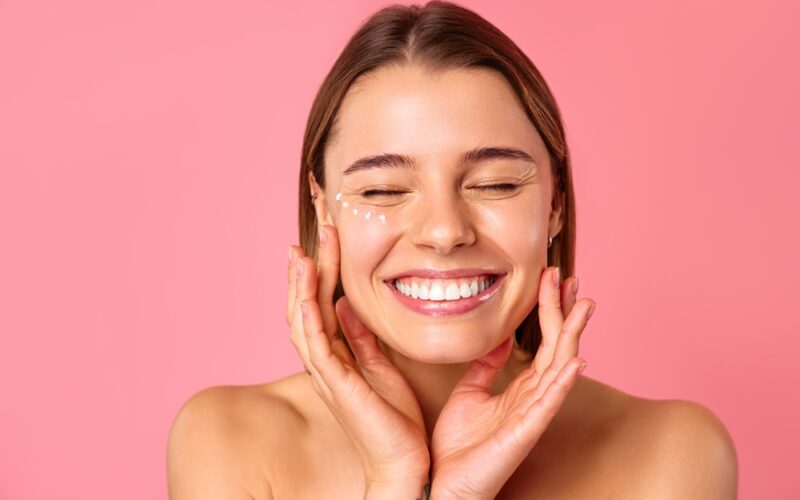In recent years, Rapamycin has gained attention in the world of anti-aging skincare. Originally developed for other medical purposes, this compound has found its way into various skincare products, offering potential benefits for aging skin. Let’s explore how Rapamycin might affect the skin and what changes individuals might experience when using Rapamycin-based products.
Key takeaways
- Rapamycin is being explored for its potential anti-aging effects on skin
- It may help with cellular renewal and collagen production
- Rapamycin is available in both topical and pill forms
- Results can vary, and consultation with a healthcare provider is essential
How Rapamycin Rejuvenates the Skin
The Rapamycin mechanism of action in skincare is rooted in its effects at the cellular level. Research suggests that Rapamycin may promote skin renewal by:
- Enhancing cellular autophagy, a process that removes damaged cells
- Potentially boosting collagen production
- Possibly improving skin elasticity
These actions could contribute to a rejuvenation effect on the skin, though more research is needed to fully understand the extent of these benefits.
What Skin Imperfections Can Rapamycin Reduce?
While individual results can vary, some studies and anecdotal reports suggest that Rapamycin might help address various skin concerns:
- Fine lines and wrinkles
- Uneven skin tone
- Loss of firmness and elasticity
- Minor scars and environmental damage
It’s important to note that while these potential benefits are promising, more research is needed to conclusively determine the effectiveness of Rapamycin for these skin concerns.
Signs of rejuvenation that appeared after Rapamycin therapy
Some individuals using Rapamycin topical products have reported noticing changes in their skin, such as:
- Smoother skin texture
- Reduction in the appearance of fine lines
- Improved skin hydration and firmness
These effects could contribute to a more youthful and revitalized appearance. However, it’s crucial to remember that results can vary significantly from person to person.
Cream vs. Injection: What’s Best for Face Rejuvenation?
When considering Rapamycin for skincare, there are two main forms to consider: Rapamycin cream and injections.
Rapamycin cream:
- Offers a non-invasive option
- Can be applied at home
- May provide gradual results over time
Rapamycin injections:
- Potentially offer more targeted treatment
- Might provide more immediate results
- Typically administered by a healthcare professional
The choice between cream and injection depends on individual preferences, skin concerns, and medical advice. It’s crucial to consult with a healthcare provider to determine the most suitable option.
Stories of success from our happy patients
While individual experiences can vary, some patients have reported positive outcomes with Rapamycin-based skincare products. For instance, Sarah, a 55-year-old patient, shared: “After using a Rapamycin cream for six months, I noticed my skin looked firmer and more radiant. The fine lines around my eyes seemed less noticeable too.”
It’s important to note that these are personal experiences and may not be representative of everyone’s results.
Conclusion
Rapamycin shows potential as a rejuvenation drug for aging skin, with possible benefits including improved skin texture, reduced appearance of fine lines, and enhanced firmness. However, as with any skincare product, results can vary, and it’s essential to have realistic expectations.
If you’re considering incorporating Rapamycin into your skincare routine, it’s crucial to consult with a healthcare provider. They can help determine if Rapamycin-based products are suitable for your specific skin needs and guide you on the best form of application.
Wondering if Rapamycin could be right for your skincare routine? Heally can connect you with experienced healthcare providers who can assess your individual needs and provide personalized advice. Our telehealth platform makes it easy to discuss your skincare goals and explore potential treatments from the comfort of your home.
Take the first step towards potentially rejuvenated skin. Schedule a consultation with Heally today to learn more about Rapamycin and other innovative skincare options!
Sources
-
- National Institute on Aging: Rapamycin: From cancer to arthritis, is this the next all-purpose drug? https://www.nia.nih.gov/news/rapamycin-cancer-arthritis-next-all-purpose-drug
- Mechanisms of Ageing and Development: Rapamycin and metformin in aging and disease https://www.sciencedirect.com/science/article/pii/S0047637416300914
- Aging Cell: Rapamycin activates autophagy in human skin fibroblasts https://onlinelibrary.wiley.com/doi/full/10.1111/acel.12837
- Journal of Clinical Investigation: Rapamycin reverses cellular phenotypes and enhances mutant protein clearance in Hutchinson-Gilford progeria syndrome cells https://www.jci.org/articles/view/55625

